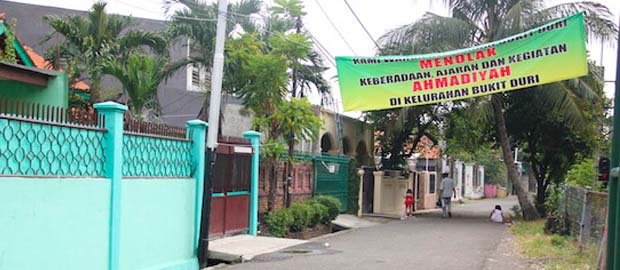The Indonesian bishops are stressing the need for a dialogue in ending a pattern of harassment and intimidation faced by the Ahmadiyya Muslim minority sect in Bangka district, Bangka-Belitung Islands province.
In early January the local government ordered the Ahmadis living in Srimenanti village to either convert to Sunni Islam or face expulsion from the district.
“Powerful religious leaders living in the area need to sit together and talk. Then they need to bridge the conflicting parties through a dialogue so that peace and harmony can be reached,” Bishop Yohanes Harun Yuwono of Tanjungkarang, chairman of the bishops’ Commission for Ecumenical and Interreligious Affairs, told ucanews.com Jan. 19.
“There must be moderate religious leaders from each religious community that can make their own followers calm,” he said.
Bishop Yuwono stressed that faith should never “lead people to hostility.”
Rahmani, who heads the district’s social welfare desk, said that at a December meeting, all residents agreed that the Ahmadiyya sect should be expelled from the village.
The meeting was organized following the Sunni Muslim villagers’ report saying that the Ahmadis were against Islamic teachings.
“Because of such objection, we were afraid that something bad would happen. We decided to ask them to live somewhere else,” he told ucanews.com.
Rahmani said there was no decision on when exactly the sect should leave the village. He also said the local government would not force Ahmadis to leave.
Andreas Harsono, an Indonesian researcher for Human Rights Watch, urged the central government to resolve the issue.
Harsono said the Ahmadis have faced intimidation for years and have received little protection from the government.
Rafendi Djamin, executive director of the Jakarta-based Human Rights Working Group, denounced the district government for issuing the letter.
“(We) lament that the local government still intervenes in someone’s faith which, according to the constitution, can’t be limited and banned,” he told ucanews.com.
He also called for additional dialogue.

